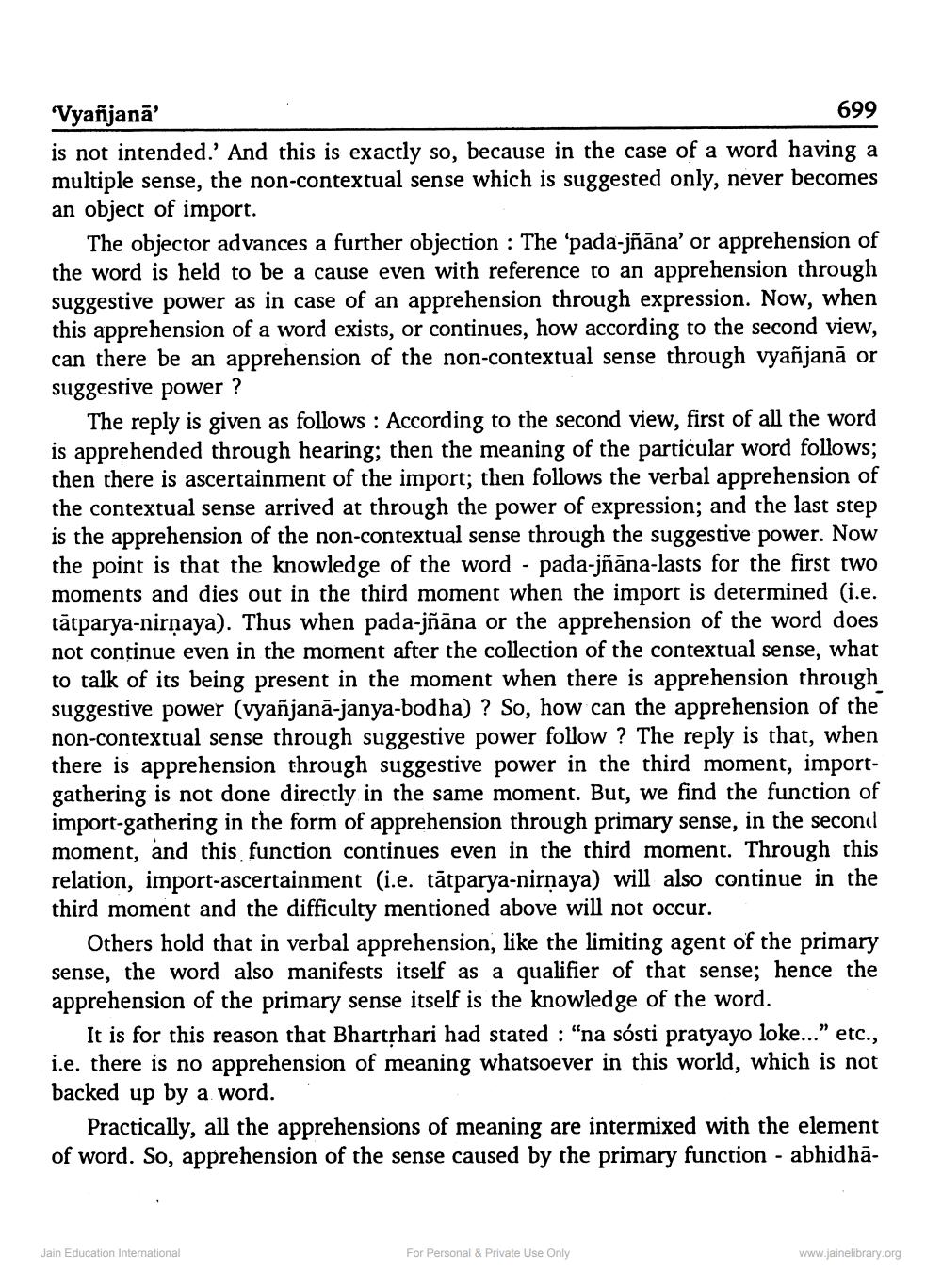________________
Vyañjana'
699 is not intended.' And this is exactly so, because in the case of a word having a multiple sense, the non-contextual sense which is suggested only, never becomes an object of import.
The objector advances a further objection : The ‘pada-jñāna' or apprehension of the word is held to be a cause even with reference to an apprehension through suggestive power as in case of an apprehension through expression. Now, when this apprehension of a word exists, or continues, how according to the second view, can there be an apprehension of the non-contextual sense through vyañjanā or suggestive power ?
The reply is given as follows : According to the second view, first of all the word is apprehended through hearing; then the meaning of the particular word follows; then there is ascertainment of the import; then follows the verbal apprehension of the contextual sense arrived at through the power of expression; and the last step is the apprehension of the non-contextual sense through the suggestive power. Now the point is that the knowledge of the word - pada-jñāna-lasts for the first two moments and dies out in the third moment when the import is determined (i.e tātparya-nirņaya). Thus when pada-jñāna or the apprehension of the word does not continue even in the moment after the collection of the contextual sense, what to talk of its being present in the moment when there is apprehension through suggestive power (vyañjanä-janya-bodha) ? So, how can the apprehension of the non-contextual sense through suggestive power follow ? The reply is that, when there is apprehension through suggestive power in the third moment, importgathering is not done directly in the same moment. But, we find the function of import-gathering in the form of apprehension through primary sense, in the second moment, and this function continues even in the third moment. Through this relation, import-ascertainment (i.e. tātparya-nirnaya) will also continue in the third moment and the difficulty mentioned above will not occur.
Others hold that in verbal apprehension, like the limiting agent of the primary sense, the word also manifests itself as a qualifier of that sense; hence the apprehension of the primary sense itself is the knowledge of the word
It is for this reason that Bhartshari had stated : “na sósti pratyayo loke...” etc., i.e. there is no apprehension of meaning whatsoever in this world, which is not backed up by a word.
Practically, all the apprehensions of meaning are intermixed with the element of word. So, apprehension of the sense caused by the primary function - abhidhā
Jain Education International
For Personal & Private Use Only
www.jainelibrary.org




